The Growth of the Sober Socialisation Movement
I don’t know about you but this latest ‘trend’ really excites me! The concept of a ‘Sober Society’ that encourages more and more events, meetings, parties etc, all with ZERO alcohol involved! Now I know to some this sounds incredibly boring and tedious, which is why we shall explore the idea of normalising a more Sober society and encouraging Sober meet-ups; there are SO many benefits to giving alcohol a back seat and letting new ideas for gathering take front and centre!
There are definitely growing numbers of individuals that are either interested in normalising remaining sober at events, or indeed actually remaining sober in social gatherings already (myself included!). There are incredible, undeniable reasons for why this is a massive shift currently occurring and the amazing benefits that could not only benefit the individual and his/her health, but the health of a SOCIETY at large. So if you’re still with me, let’s explore the above in depth and chances are by the end, you’ll be left wondering why you didn’t try these things earlier! – Bold statement from me I know, but come along with me and give me a chance to convince you why alcohol is so last century.
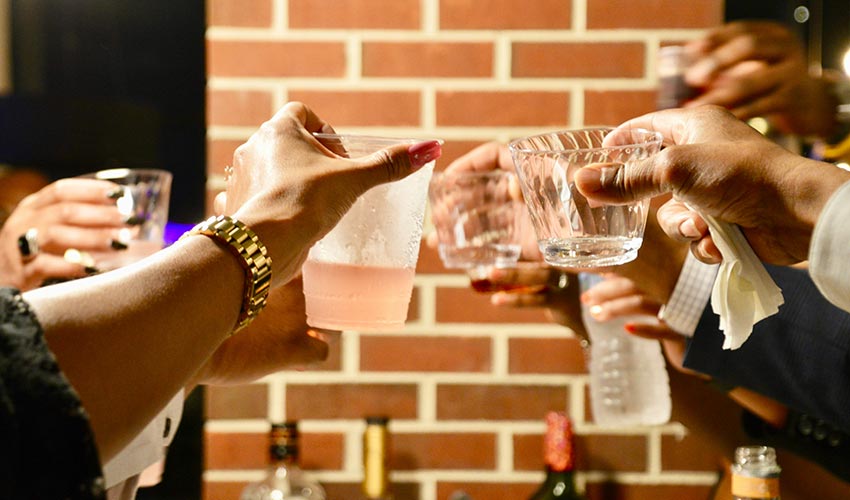
My Reasons For Promoting Sober Societies
So personally for me, I was struck with meningoencephalitis (a form of meningitis) at the age of 13, paralysed from the waist down. I did however begin to learn to walk again and the connection between my brain and those organs below my waist began to slowly come back online. A very big but here, BUT I never quite gained back everything with my bladder. A long story short, I now have a ‘neuropathic’ bladder – It’s over-reactive and under-reactive due to the disruption of connections that were lost briefly during my illness. So as you might be able to imagine, alcoholic beverages have never really agreed with my neurologically impaired bladder and its challenges (chronically inflamed lining, repetitive water infections etc).
This of course has sometimes NOT come in the way between being a young woman in the world wanting to be “normal” and engage in the “regular” way of socialising that undoubtedly includes alcohol at times, but I have always paid a price for this and the older I’m getting I’m leaning towards not bothering with alcohol at all. I’m not a big drinker anyway so it’s very rare that I would partake in this tradition however I have found myself either avoiding events altogether when I know there will be alcohol involved OR feeling particularly anxious in the lead up to events I know will involve alcohol consumption.
Non-alcoholic drinks, including botanical-infused waters and craft mocktails are becoming mainstream, signalling a shift towards Sober socialising and alcohol-free community spaces. So, the idea of promoting a ‘Sober-society’, or Sober socialisation is of a very big, personal interest of my own. However, with all this research and these new concepts and ideas, I am hoping to twist your arm too in favour of these more ‘Sober’ options.
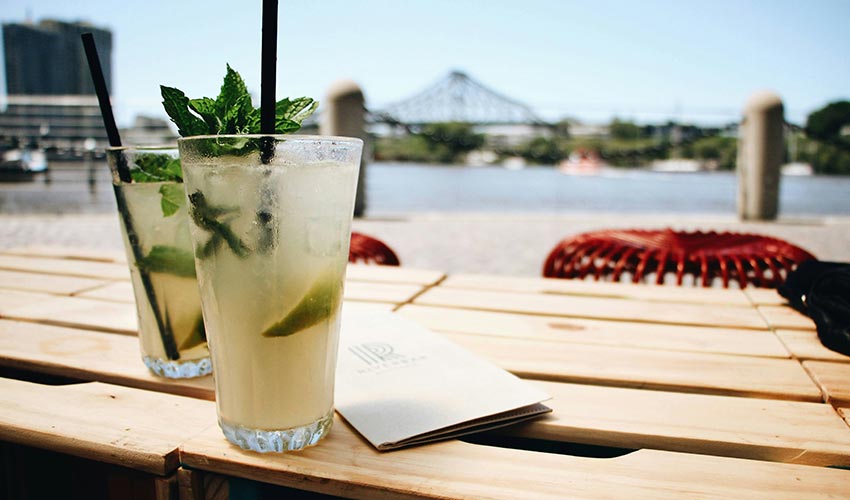
Are We Moving Towards Sober-Socialising?
In nearly every era, alcohol has been deeply intertwined with socialising, celebration, and cultural identity. However, attitudes towards it continue to evolve, influenced by health trends, legal regulations, and societal values. There appears to be a growing cultural shift toward Sober socialisation in various parts of the world, driven by changing attitudes toward alcohol consumption, health consciousness, and inclusivity. Let’s have a look at some key factors and trends contributing to this shift:
Rise of the "Sober Curious" Movement
The "Sober curious" movement encourages people to question the role of alcohol in their lives without necessarily committing to complete sobriety. Many are choosing to reduce or eliminate alcohol to focus on mental clarity, physical health, or productivity.
Health & Wellness Trends
As more people adopt lifestyles centred on health and wellness, the negative effects of alcohol consumption are increasingly scrutinised. Concerns about the long-term impacts of drinking, including its links to cancer, mental health issues, and sleep disruption, have prompted a decline in alcohol consumption.
Social Media Influence
Social media has amplified wellness narratives, showcasing alternatives to alcohol-centred events. Platforms often highlight non-alcoholic drinks, "mocktail" recipes, and Sober-friendly venues, making Sober socialisation trendy and accessible.
Emergence of Alcohol-Free Spaces
Bars and venues catering specifically to Sober individuals are becoming more common. Alcohol-free bars, "dry discos," and events focused on mindfulness or creativity provide spaces for people to connect without alcohol.
Expanding Market for Non-Alcoholic Beverages
The non-alcoholic beverage market is booming, with options ranging from non-alcoholic spirits to craft sodas and kombucha (how nice is Kombucha?!). These drinks allow people to enjoy a "grown-up" beverage without alcohol, reducing the stigma around abstaining at social gatherings.
Inclusivity & Cultural Shifts
Inclusion of diverse perspectives has led to an increased recognition of those who don't drink for religious, cultural, or personal reasons. Sober socialisation is seen as more welcoming and accommodating to all.
Younger Generations Drinking Less
Millennials and Gen Z tend to drink less than older generations. They often prioritise experiences, self-improvement, and social justice causes over traditional drinking culture. Many in these age groups also cite financial concerns, as alcohol is becoming increasingly expensive!
Pandemic Influence
The COVID-19 pandemic highlighted the dangers of excessive drinking for many, leading to increased interest in sobriety. Lockdowns also spurred creativity in organising virtual and Sober-friendly gatherings. The few ‘pro’s’ that came out of that time, I’d say this was a good one.
This shift has implications for industries like hospitality, beverage production, and event planning. It also challenges the traditional association between alcohol and celebration, paving the way for a broader definition of fun and connection.
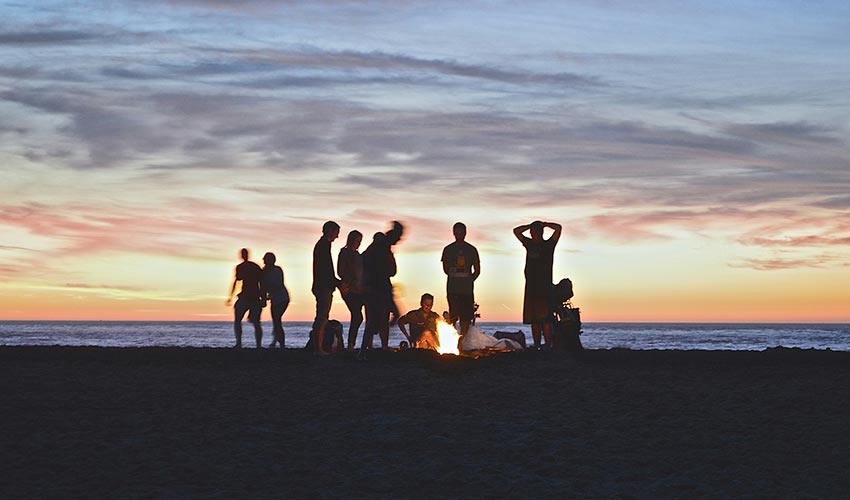
Younger Generations
Younger generations – Millennials (born roughly 1981–1996) and Gen Z (born roughly 1997–2012) – are approaching socialisation differently for several reasons, influenced by shifts in cultural values, economic pressures, and technological advancements. Younger people are more informed about the long-term health effects of alcohol, such as liver damage, mental health issues, and its role in chronic diseases. This awareness is driven by better access to information through social media and other digital platforms. The rise of fitness and wellness trends have become a significant part of youth culture. Activities like yoga, meditation, and clean eating are valued, and alcohol is often seen as inconsistent with these goals. Gen Z, in particular, is highly attuned to mental health concerns. They recognise that alcohol can exacerbate issues like anxiety and depression, making sobriety a more attractive option.
We can’t not address economic realities – many younger people face financial pressures, such as student debt, high housing costs, and stagnating wages. Drinking, especially in social settings like bars or clubs, can be expensive. Choosing to abstain or moderate drinking aligns with a desire to save money. Millennials and Gen Z tend to prioritise spending on experiences such as travel, concerts, and hobbies over material possessions. Alcohol consumption may be viewed as a less meaningful expense. They really are redefining FUN! Plus, Sober socialisation allows for clearer communication and deeper connections. Younger generations often place a premium on authentic interactions, which can be hindered by heavy drinking.
Unlike previous generations, where drinking was often seen as a rite of passage, there is less stigma attached to not drinking today. This shift makes it easier for younger people to opt out. Younger generations value inclusivity and are mindful of creating spaces where everyone, regardless of their choices, feels comfortable. Sober-friendly events reflect this ethos. Many younger people are experimenting with sobriety for short periods, such as during "Dry January" or "Sober October." These initiatives make it more acceptable to question the role of alcohol in one’s life. With the rise of Apps, promoting mindfulness and sobriety, such as Calm or Headspace, have made it easier for young people to explore alternative lifestyles. They really are rejecting the "Work Hard, Play Hard" culture which I for one am glad to see the back of!

Sober-Friendly Social Activities & Events
This generational change reflects broader societal trends. As we have seen, younger people are challenging the idea that alcohol is essential for fun, status, or relaxation, instead creating spaces and rituals that align with their values of inclusivity, authenticity, and well-being. So here are examples of Sober-friendly activities and events that MANY generations are now embracing, reflecting their desire for meaningful, fun, and engaging social experiences without alcohol:
- Painting and Craft Nights: Social events where participants create art, such as painting, pottery, or DIY crafts. Many of these events pair creativity with non-alcoholic beverages like mocktails.
- Cooking Classes: Group cooking or baking sessions allow participants to learn new skills and share a meal together without alcohol as the focus.
- Photography Walks: Meetups for amateur photographers to explore urban areas or nature while connecting with others.
Wellness-Focused Activities
- Yoga or Meditation Classes: Events that combine mindfulness practices with community bonding. "Yoga brunches" are a popular trend, often including healthy meals and non-alcoholic drinks. Sound Baths: A group relaxation experience where participants enjoy soothing sounds and vibrations, often held in serene locations. If you haven’t tried one, I highly recommend that you do!
- Fitness Socials: Group hikes, spin classes, or park workouts provide an active way to connect.
- Book Clubs: Groups focused on discussing books over snacks and coffee, designed to foster deep conversations.
- Poetry Slams or Open Mic Nights: Sober-friendly spaces for sharing creativity, whether through poetry, comedy, or music.
- Museum or Gallery Nights: Evening events at cultural institutions, often paired with non-alcoholic drinks and light bites.
- Creative Writing or Journaling Retreats: Opportunities to explore self-expression while connecting with others in a tranquil, Sober setting.
Tech, Gaming & Trivia Gatherings
- LAN Parties or Gaming Meetups: Multiplayer video game events that bring gamers together for fun competitions or collaborations.
- Virtual Reality (VR) Arcades: Shared experiences in VR environments for fun and exploration.
- Coding or Tech Workshops: Fun group activities where participants can learn or improve their skills.
- Board Game Cafés: Spaces where friends can gather to play games over coffee, tea, hot chocolate, non-alcoholic beverages in general.
- Trivia Nights: Often hosted in cafes or community centres, these events are competitive, fun, and don’t require alcohol.
- Escape Rooms: Collaborative problem-solving in themed rooms is an exciting and immersive experience and I absolutely LOVE them.
Sober-Friendly Events
- Sober Dance Parties: "Dry Discos": Dance parties with a nightclub vibe but no alcohol. DJs, mood lighting, and a high-energy atmosphere create a fun, alcohol-free experience.
- Daybreaker Events: Morning dance parties that combine fitness, yoga, and ecstatic dance in a substance-free environment.
- Mocktail Mixology Classes: Interactive classes where participants learn how to craft sophisticated, alcohol-free beverages using fresh ingredients and creative techniques.
- Wellness Retreats: Multi-day events focused on mindfulness, fitness, and community.
- Farmers’ Markets and Food Fairs: Vibrant community events where the focus is on artisan foods, crafts, and entertainment.
These activities emphasise connection, creativity, and well-being, helping redefine social norms and making sobriety an appealing lifestyle choice. Honestly, Sober is looking fun right!?
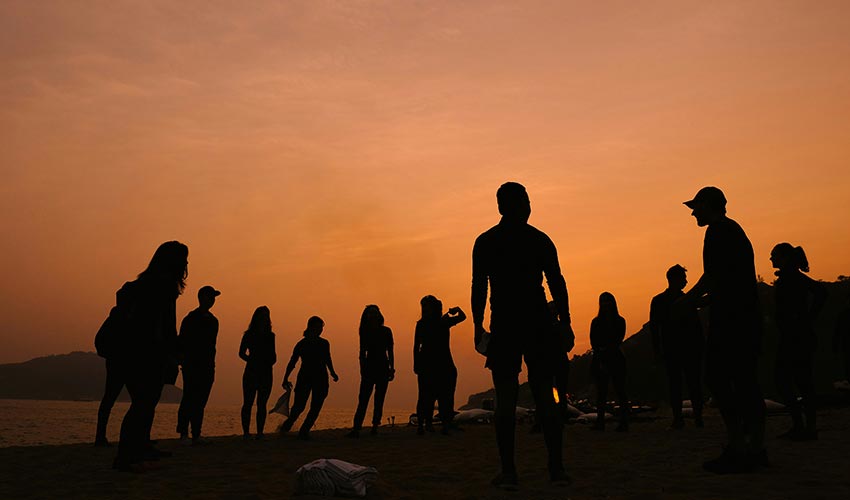
The Positive Outcome of The Shift
The shift toward Sober socialisation has the potential to benefit society in several meaningful ways. While individual and societal impacts will depend on how widely and deeply this trend takes root, there are clear areas where it could lead to positive outcomes. One such an undeniable area is physical and mental health! – Lower alcohol consumption can decrease rates of liver disease, cardiovascular problems, and certain cancers, leading to healthier people, everywhere. Reduced drinking will also help mitigate alcohol-related anxiety, depression, and other mental health issues. It also lessens the stigma around prioritising our mental health. With less alcohol consumption, we will experience improved sleep quality and better focus generally, which in turn can boost personal and professional productivity. By normalising Sober socialisation, society can reduce the stigma surrounding those who choose not to drink, such as recovering alcoholics or those like myself, with health conditions.
Without alcohol as a social crutch, people may get to form deeper, more genuine relationships, leading to stronger bonds and therefore stronger communities at large. Let’s not forget, alcohol is often linked to violent crimes, domestic abuse, and other harmful behaviours. A cultural shift toward Sober socialising could reduce these incidences. And let's absolutely address drunk driving – it remains a major cause of accidents and fatalities. So declining alcohol consumption could lead to safer roads, no argument there right?
There is no positive outcome without also addressing the environmental footprint that alcohol currently has – alcohol production is resource-intensive, requiring water, energy, and raw materials. A decrease in demand could reduce the industry’s environmental footprint. The growing popularity of local, organic, and low-impact non-alcoholic options aligns so much more with broader environmental movements.
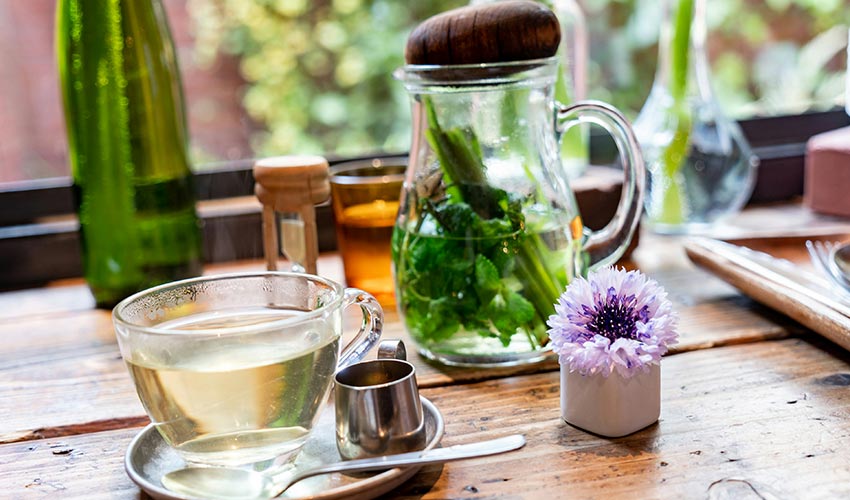
Challenges to Overcome
While these benefits are significant, the shift is not without challenges. There will of course, as with any and all changes, be some resistance from traditional norms. Alcohol remains deeply ingrained in many cultures, and there may be pushback from industries and individuals who benefit from its prominence. Not all communities have access to affordable, appealing non-alcoholic options or Sober-friendly spaces. Even as norms shift, individuals who choose sobriety may still encounter judgment or exclusion in certain circles (those that DO however exclude you for these reasons, are not your people…).
Long-Term Societal Impact
The rise of non-alcoholic beverages, Sober event planning, and wellness-focused activities is creating new economic opportunities. This diversification benefits both consumers and businesses. Venues and events that emphasise experiences over alcohol may appeal to broader audiences, which can only mean more creativity and innovation in the entertainment sector. Major economic and cultural shifts. If this trend continues and gains mainstream acceptance, it could:
- Lead to a healthier, more balanced society with reduced healthcare costs.
- Encourage a focus on meaningful, intentional living and social interaction.
- Inspire systemic changes in industries that have historically relied on alcohol to drive profits.

Final Thoughts
The trend toward Sober socialisation has profound implications for health, both at the individual and societal levels. One of the most immediate benefits to me is the reduction of alcohol-related illnesses; as mentioned previously, excessive drinking is a well-documented risk factor for numerous health conditions, including liver disease, cardiovascular issues, certain cancers, and gastrointestinal problems. As more people opt for alcohol-free lifestyles or significantly reduce their consumption, we can expect a decline in the prevalence of these conditions. This shift could alleviate strain on healthcare systems, freeing up resources for other medical needs.
Mental health stands to benefit as well. Alcohol, while often used as a social lubricant, is a depressant that can exacerbate anxiety and depression in the long term. The cultural normalisation of sobriety offers people an alternative path to connection and relaxation that doesn't rely on substances that might harm their mental well-being. Additionally, improved sleep patterns, a common side effect of reduced alcohol consumption, can contribute to better overall mental health and energy levels, making it easier for us to manage stress and maintain productivity.
From a public health perspective, the decline in alcohol consumption could lead to fewer alcohol-related accidents and injuries as mentioned earlier. With less alcohol in social settings, there may be a decrease in alcohol-fuelled violence, including domestic abuse and altercations. These improvements would not only enhance individual safety but also foster healthier communities where people feel secure and supported.
I am absolutely, in no way trying to convince the world that Sober is the ONLY way forward, because of course we are only human, and to be human is to experiment and embrace all things, and within this, at some point, may include drinking in social settings and trying this culture for ourselves. My point here, throughout this article, is to draw awareness to OTHER ways of socialising that do not include the consumption of a potentially dangerous form of socialising that is more familiar to our wider culture than that of a Sober one. I think it best to highlight all options available to us, and to not make one or the other right or wrong (even though over consumption of alcohol has its downsides for many reasons), and ideally to not form judgement of each other’s choices. There are undeniable pro’s to this movement, so I hope by this point I may have convinced you of this too.
In the long term, the cultural embrace of Sober socialisation could reshape how society views health and wellness. As alcohol becomes less central to celebrations and social rituals, there may be a broader shift toward prioritising self-care and sustainable well-being. This could influence younger generations to make healthier lifestyle choices (I know I want that for my kids), reducing the societal burden of alcohol-related health complications and fostering a culture that values connection and vitality over indulgence. I really do feel that younger generations are reshaping perceptions of what fun and meaningful social interactions look like. These shifts can influence older generations and future ones, which is undeniably exciting to see where this movement can take us both as individuals and as society at large. And closing this out, let’s not forget about that bucket of money you’d save by choosing not to spend lots of money on alcohol! So go invest in your health instead, and get yourself EXPERIENCES – you never know where this might lead you.
“I chose Sober because I wanted a better life. I stay Sober because I got one” – Way Of Sober






















